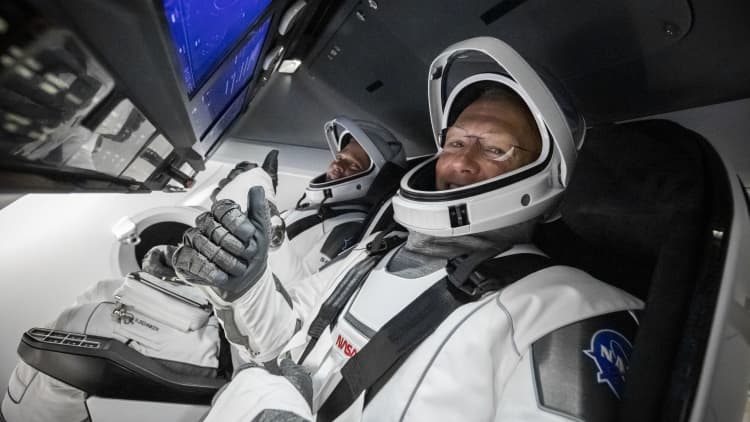SpaceX CEO Elon Musk took to Twitter on Thursday to blast his company's biggest U.S. rocket-building competitor United Launch Alliance.
"Because their rockets are not reusable, it will become obvious over time that ULA is a complete waste of taxpayer money," Musk said.
Musk's response is the first comment made by any of SpaceX's leadership after the U.S. Air Force announced on Friday that his space company would launch 40% of the military's national security missions between 2022 and 2026. ULA won the other 60% of the missions, with the pair of companies beating out challengers Blue Origin and Northrop Grumman. In all, the contracts are very lucrative for both SpaceX and ULA, as the Pentagon expects to spend about $1 billion per year on launches over that time frame.
Tory Bruno, the CEO of ULA, responded to Musk's tweet indirectly, congratulating SpaceX on the contract award.
ULA is a joint venture of Boeing and Lockheed Martin. Both SpaceX and ULA have launched dozens of payloads for the military, with the former increasingly challenging the latter in a market that was a ULA monopoly until 2014. The valuable nature of national security contracts made the recent bidding between the four companies highly competitive. SpaceX sued the Air Force last year after not winning a development award and Blue Origin protested the criteria the Pentagon used for the launch contracts.
The Air Force also awarded the first three missions under the contract, with ULA getting $337 million for two launches and SpaceX getting $316 million for the other mission, all due to launch in 2022.

Musk's criticism of ULA centers around reusing rockets, which he says is "all that matters" for space — both to decrease the cost of access as well as expanding the U.S. military's influence. SpaceX has steadily pushed the boundaries of reusing rockets, most notably by landing the booster that makes up the largest and most expensive part. SpaceX has been able to reuse a single Falcon booster as many as five times and is also increasingly reusing the nosecones as well.
ULA on the other hand has been developing its Vulcan rocket, to both replace its aging Atlas and Delta rockets and end the use of Russian-built rocket engines. ULA's Atlas V rocket is powered by RD-180 engines, which are bought from Russia. While ULA has talked about reusing Vulcan's rocket engines by catching them in the air with a system of parachutes and helicopters, the company has not announced when it expects to begin testing that system. ULA's first Vulcan launches will be expendable, with each part of the rocket either falling into the ocean or burning up in the atmosphere.
ULA executives have said the company still wants to eventually reuse Vulcan rockets but has yet to announce a timeline or goal for doing so.
Subscribe to CNBC PRO for exclusive insights and analysis, and live business day programming from around the world.


